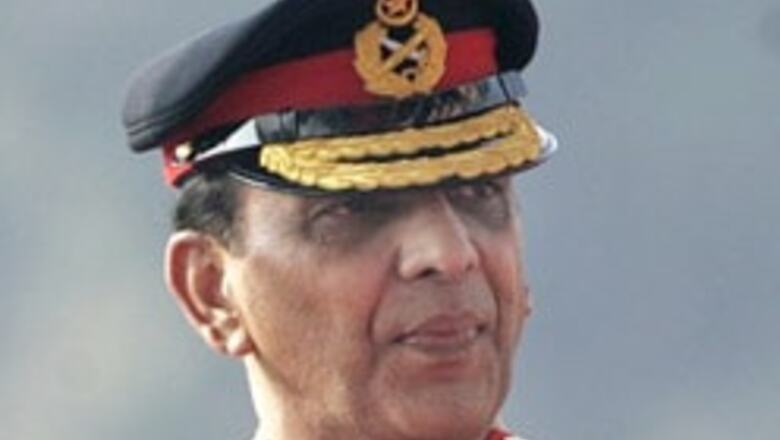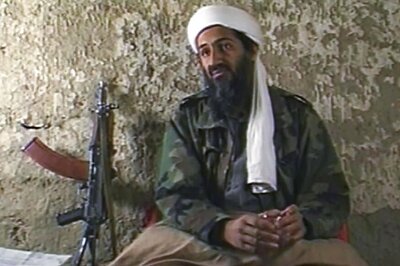
views
Washington: American military and intelligence experts fear a “nightmare scenario” for Pakistan's nuclear arsenal if the country's political institutions and military safeguards begin to fall apart.
This is the conclusion reached by analysts on the basis of a secret war game conducted by a small group of US military experts and intelligence officials last year, the Washington Post reported on Sunday.
"The bottom line is, it's the nightmare scenario," retired Marine Col. Gary Anderson, who participated in an earlier exercise that simulated a break-up of Pakistan, was quoted as saying. "It has loose nukes, hard to find, potentially in the hands of Islamic extremists, and there aren't a lot of good military options."
Analysts cited by the newspaper caution that Pakistan President Pervez Musharraf's recent moves, including stepping down as army chief and setting a timeline for restoring constitutional rule, haven't ended the risks of further instability.
"These are very half-hearted gestures," said Anita Weiss, author of Power and Civil Society in Pakistan and a professor at the University of Oregon. "Pakistan is not yet where we can say things have been resolved."
The secret exercise—conducted without official sponsorship from any government agency, apparently due to the sensitivity of its subject—was one of several such games the US government has conducted in recent years examining various options and scenarios for Pakistan's nuclear weapons, the daily said.
The questions posed included: How many troops might be required for a military intervention in Pakistan? Could Pakistani nuclear bunkers be isolated by saturating the surrounding areas with tens of thousands of high-powered mines, dropped from the air and packed with anti-tank and anti-personnel munitions? Or might such a move only worsen the security of Pakistan's arsenal?
PAGE_BREAK
For several years the US government has sought to help Pakistan improve its weapons safeguards, spending tens of millions of dollars since 2001 to boost the security of the country's nuclear bunkers.
Although US officials express confidence in the current security measures, the more they examine the risks, the more they realize that there are no good answers, the Post said citing Robert B. Oakley, a former US ambassador to Pakistan.
"Everybody's scrambling on this," Oakley said.
The conclusion of last year's game, said one participant, was that there are no palatable ways to forcibly ensure the security of Pakistan's nuclear weapons - and that even studying scenarios for intervention could worsen the risks by undermining US-Pakistan cooperation.
"It's an unbelievably daunting problem," said this participant, a former Pentagon official who asked not to be identified because of the game's secrecy.
The contingency planners really haven't developed answers for how to deal with nuclear weapons stashed in Pakistan's big cities and high mountain ranges, he was cited as saying.
An expert on Pakistani terrorism who did not attend last year's war game but learned about some of its conclusions said that senior US officials "weren't pleased with what the game told them; they were quite shocked".
He spoke on the condition of anonymity because, the Post said, the US efforts related to securing Pakistan's nuclear arsenal involve "really, really black SAPs" - that is, among the most highly guarded "special access programmes."
Even some steps that might appear to offer a short-term solution could backfire in the long run, warned Milton Bearden, a former CIA station chief in Islamabad who now does some work for the Pakistani government on trade issues.
PAGE_BREAK
A concern of some proliferation experts is that in an internal break-up, a contending faction might seek to grab some of the nuclear warheads, not necessarily to use them but to wield them as a symbol of authority.
"I think there is a lot of concern about this, and the less stable the government and the society become, the greater the concern," the Post said citing a senior US intelligence officer whose agency wouldn't permit him to speak for attribution.
That said, he added in an interview with Post, the sense inside the intelligence community currently was that the threat isn't dire. Also, he said, "the good news is that Pakistan... takes this very, very seriously."
But what if the government of Pakistan can't ensure the security of the nukes? "Then I would agree there are no good answers," he said. So far, Pakistan's internal crisis hasn't become widely violent, he noted. "I think if things get violent, if the government loses control, then one considers the risks in a more active way."
The war games conducted by the US government and by other experts offer a recurring conclusion: Retaining the cooperation of the Pakistani government, especially its military, is crucial.
The bottom line, said Oakley, the veteran diplomat, is that "the only way you can safeguard them is to work very, very closely with the Pakistani army." To attack that army, he said, would erode the one institution that is keeping the weapons under control. "If you want nukes to get loose," he said, "that's the way to do it."




















Comments
0 comment